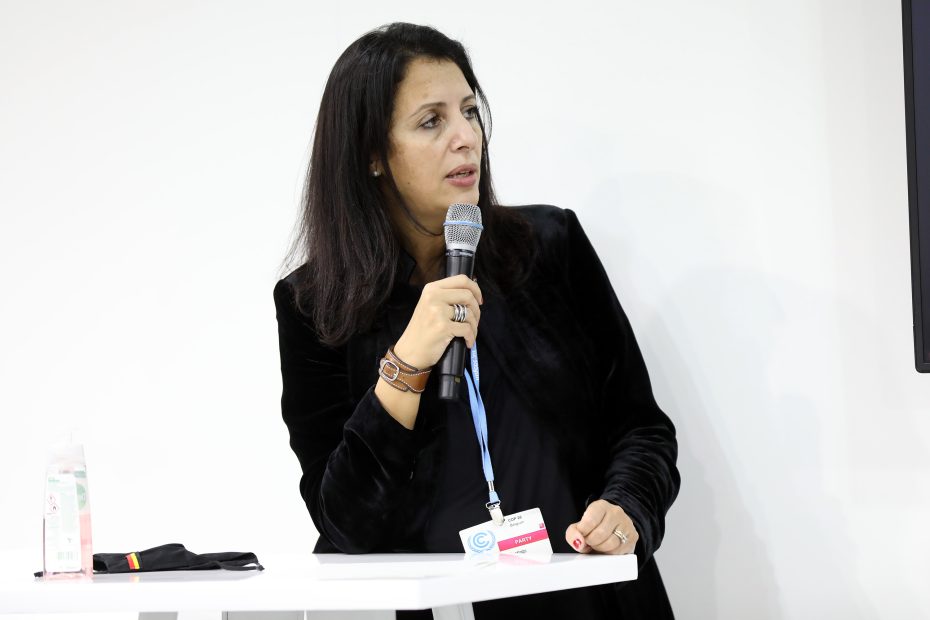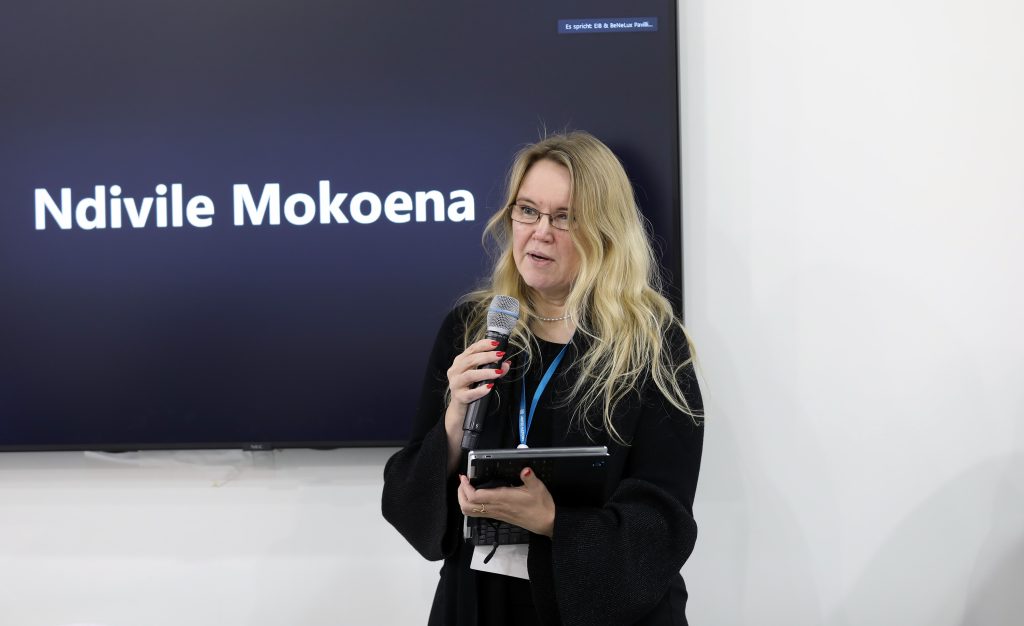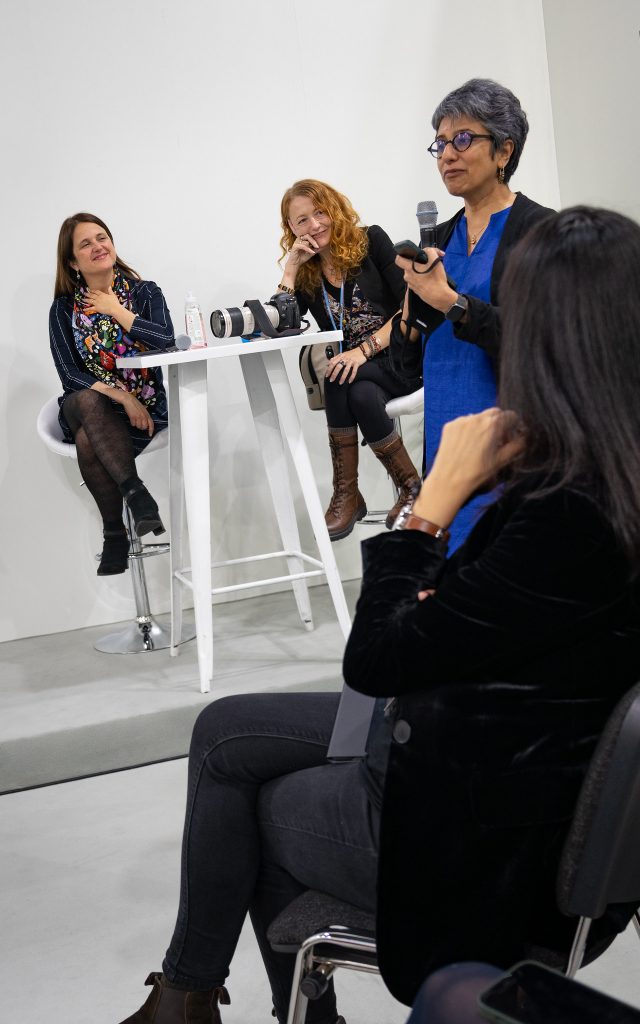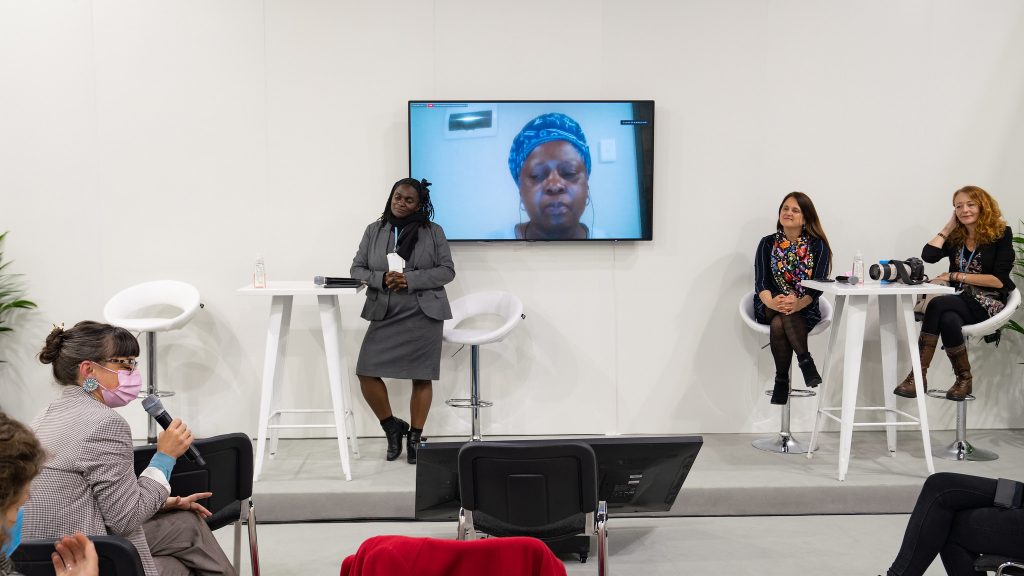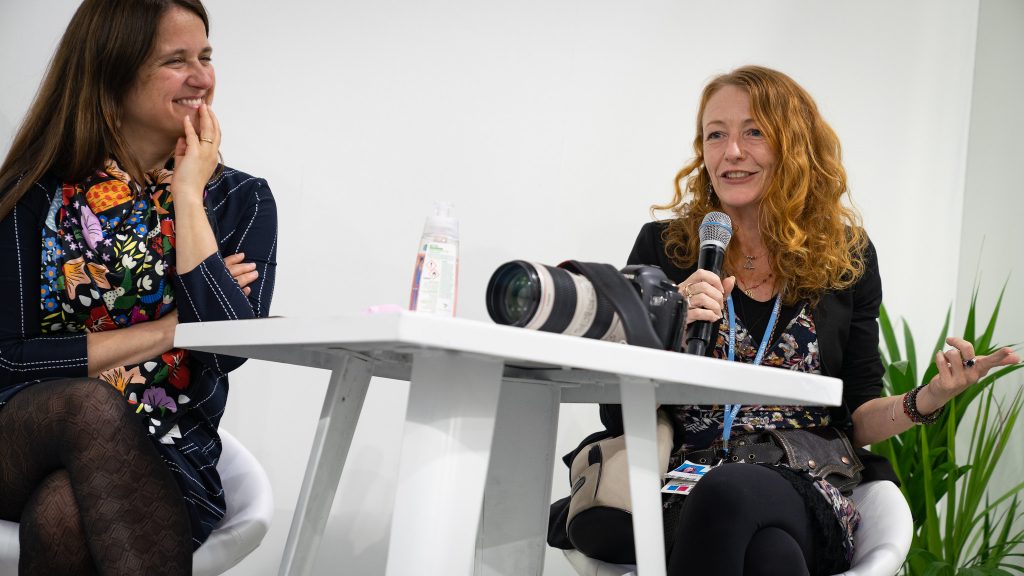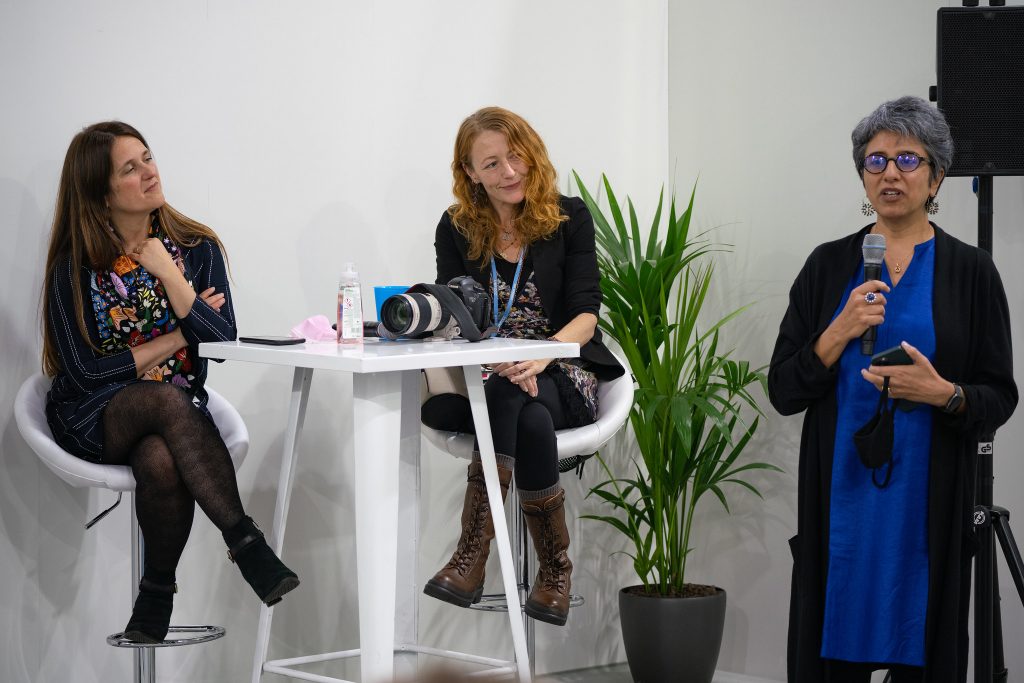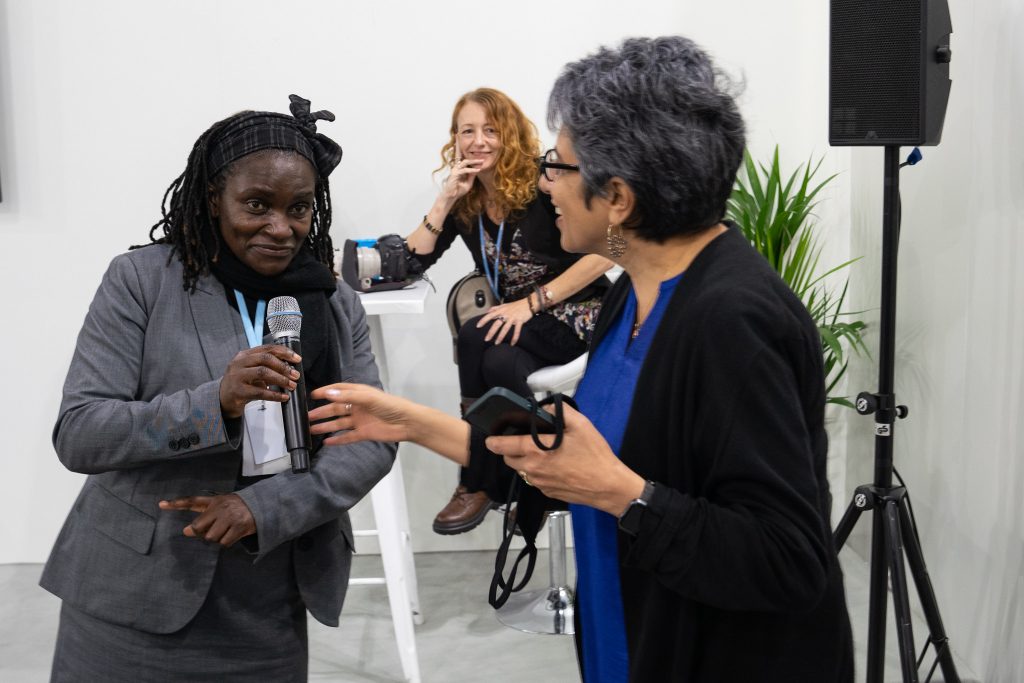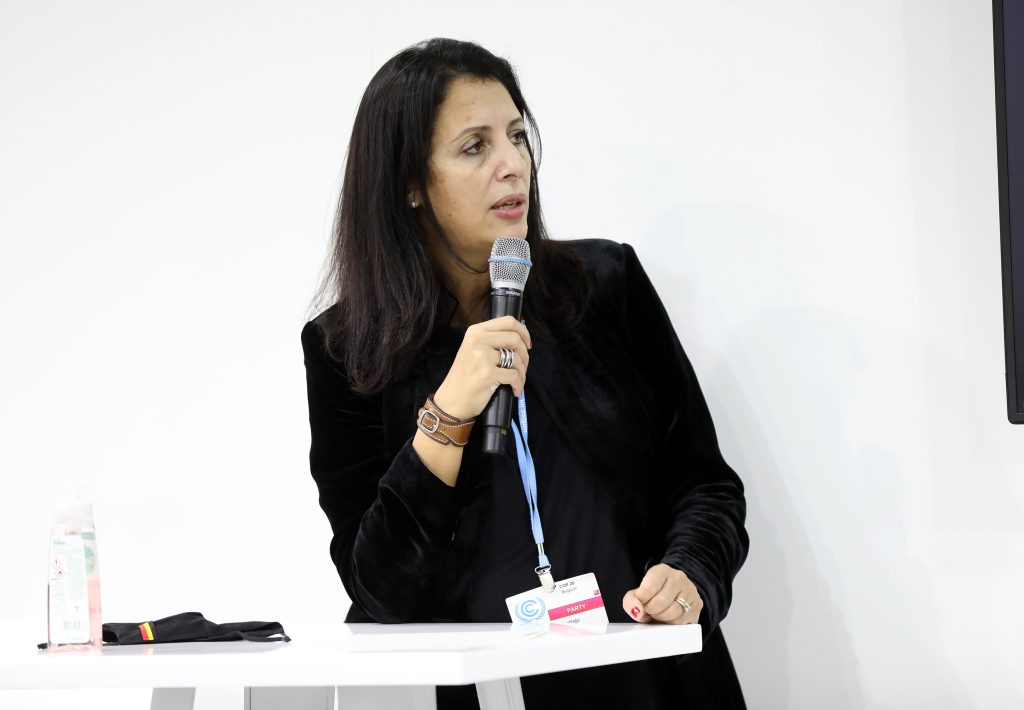9 November 2021. The UNFCCC Women Climate Leaders Network, launched by the Chilean Presidency at COP25 in Madrid, organised a side event at COP26 on Gender Day. Participants and audience members shared experiences.
The Network provides opportunities for women negotiators holding leadership positions in the UNFCCC process to meet and exchange knowledge and experiences; support each other; and work with other women negotiators in the process to achieve gender balance in the leadership, and overall composition, of UNFCCC bodies.
The side event was supported by the UK Presidency; and by the Government of the Grand Duchy of Luxembourg, the Government of Belgium, the Government of the Netherlands (together known as BENELUX) and the European Investment Bank (EIB) kindly made their pavilion at COP26 available for the side event.
“Data has shown that gender sensitive policies will likely happen only when women can participate in decision-making processes, which is why having women at the table, including in leadership positions, is of the utmost importance,” said Zakia Khattabi, Environment Minister of Belgium, in her opening speech. “In this regard the Women leaders Network of the UNFCCC is a welcome and necessary channel to inspire women and girls, and to develop gender sensitive policies and processes.”
Moderator Annela Anger-Kraavi, former SBSTA Vice-Chair, current KCI Co-Chair and the founder and one of the leadership group members of the Network, said, while introducing the network, that a key reason for establishing the Network was to ramp up this kind of support and encourage women to take up leadership positions in the UNFCCC processes.
Carolina Urmeneta Labarca, Head of the Office of Climate Change the Ministry of Environment, Chile, told participants about the Climate Change Framework Bill that was passed unanimously in Chile recently, despite it being a difficult political moment for the country. This was unprecedented, she said, and only possible because the process was led by women, including by Chile’s Environment Minister Carolina Schmidt. Women are better listeners and empathisers, said Labarca, and the Bill was passed unanimously because it reflected everything that was said during hours of difficult negotiations in Congress.
Ndiville Mokoena, Focal Point for the UNFCCC’s Women and Gender Constituency, described being “petrified” when she was first asked to take on her international role, and her attempts to turn it down. “Although having a leadership position at the fast-paced international level was daunting, I had amazing support from Constituency members and the UNFCCC Secretariat team,” said Mokoena.
About 75% of the speaking time in the UNFCCC plenary is taken up by men, said UNFCCC photographer and panellist Kiara Worth, quoting a recent report on gender by the UNFCCC Secretariat. She described the challenges she faces in reflecting a gender balance in her coverage of UNFCCC events, but noted that the situation is slowly changing. For instance, when the Ad Hoc Working Group on the Paris Agreement was chaired by two women, she said, they were, together “a powerful force, who entered the space and claimed it with style and grace.”
The panellists went on to discuss the challenges of sharing the work burden at home; the lack of capacity building opportunities for women from developing countries, especially observers; and the powerful role of storytelling in empowering other women.
